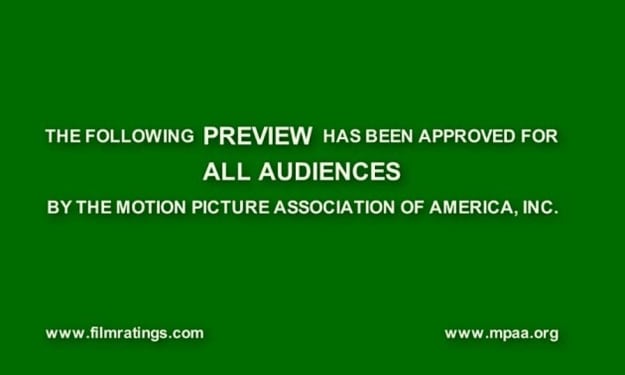YOU'VE BEEN BLACKLISTED
How Franklin Leonard Revolutionized the Entertainment Industry and Opened Doors for New Storytellers

New message: ”You’ve been Blacklisted!”
What is your first reaction to such a message?
It would be reasonable to be panicked and worried, since historically, being “blacklisted” has been synonymous with being banned or discredited.
The association provides an undoubtedly sad commentary on societal and systemic views of “Black” and "dark."
But thanks to Franklin Leonard, screenwriters will have a very different reaction: excitement, joy, and pride at their new accomplishment!
=> Getting a script on The Black List.
When The Black List started in 2005, Franklin was a developmental executive at a production company. In general, producers and financiers don’t want to put money into a movie that’s not going to make them back any money. Fair, right? That’s why most of the movies getting made tend to be cash grabs – source material with an existing fanbase or a star vehicle. “Independent films” were actually independent still in 2005 because a studio wouldn’t make an artsy darling.
This money-centric model seems to work and it gives many film executives a paycheck, but it also can breed some discontentment if they ultimately have to pass on a project, despite their personal passion for it. It’s often imperative to remember that if the movie doesn’t do well, it’ll be their head on the chopping block.
Then came Franklin.
It started as an innocent enough experiment. Franklin reached out to his network of executives from other entertainment companies (about 75, in fact) and asked one simple question: What was your favorite unproduced screenplay? He said he’d collect the answers from everyone and circulate back an excel spreadsheet with a list of what everyone voted for (plus how many votes it got), keeping sources anonymous.
He questioned what movies would rise up if executives only used the lens of their own taste. For once, he thought, let’s forget the macro lens that our job demands of us.
On that original list were movies like Juno, Lars and the Real Girl, and Little Miss Sunshine.
All three of which were then produced and released by 2007. Juno turned a $7.5M budget into $232M gross worldwide. Little Miss Sunshine turned an $8M budget into a $101M gross worldwide. And Lars and The Real Girl … well… ($12M budget for $12M gross worldwide) but it’s one of my absolute favorite movies of all time so that counts as a success too!
It’s not always about the money!
In fact, this list illuminated a new way to look at scripts.
The passion and taste of the industry’s workers sprung to the forefront.
Even before the scripts that made the list were getting produced, this spreadsheet took off — deemed The Black List (Franklin was intentionally subverting the typical meaning of the phrase when he named it).
Everyone sent this list to everyone.
Franklin often tells a story of hearing a pitch one day from a writer's agent, when the agent said his client was “set to be on the next year’s Black List,” which was, of course, news to him. He hadn’t even decided there’d be a 'next year'…
Clearly, there was a demand. The industry was excited. This list meant something to people.
So, Franklin kept the list going, each year, and since then, he has let it evolve too, initiating a revolution that promises to upend and change the industry forever.
As Franklin will tell you, there used to be one specific path to selling a script.
The recommendation to aspiring writers was that they:
– basically put in a lot of time and energy into the chance that they’ll finally make the right connection that will put their script in front of the right people.
And that’s definitely been the success story for many writers.
Which is great! For those writers. Who had the means to drop everything, work for free, and still survive...
The people with the means to take such action were, historically/typically, affluent white men.
Which… if all the scripts being sold and produced are being written by white men, there’s a hefty limit to the types of movies we’ll get to see, baked right in at the foundation. The script is where every movie starts. And the story is where every script starts.
Who are our storytellers? Who do we listen to the most?
A Black woman in Chicago with three kids can’t just drop everything, move to LA, and work for free for a year. Yet, she might have in her a story that we all need to hear.
That’s why The Black List needed to evolve, to become a company set on spotlighting brilliant stories and thoughtful screenwriting from writers who may have been overlooked otherwise. The Black List curates and collects the work of writers from all over the world, with or without representation, and gives them the chance to get their work seen.
So, because of The Black List, passion can finally shake up an industry that’s come to rely on “networking” and gatekeepers.
When Franklin established The Black List, he also established a more democratic platform for purchasing and selling scripts.
Meaning Hollywood can start to become more democratic too.
Because the means to drop everything in your life and move to LA does not correlate with quality craftsmanship or any actual skill as a writer. Some might even argue the reverse is true... (No shade on white male writers, I'm just saying your affluence isn't adding to the stories you've got in you to tell! Heck, even the affluent storyline of Bridgerton only became better with diversity behind-the-scenes.)
I care about the diversity of our storytellers because I attribute much of my personality and life choices to the movies and television shows that basically raised me. The entertainment industry had a big part in shaping who I am, so when I think of shaping who I will become, I look to the writers of today. I want to make sure the movies ahead of us set the right precedent and build the right future for the world.
Thankfully, they’re starting to. Now, we've got movies like Queen & Slim, Promising Young Woman, and Life Itself.
That’s why I’m immensely grateful for Franklin Leonard.
Yes, movies are fun. Yes, entertainment is a money-making business. But when children and teenagers engage with a movie, they simultaneously form how they’ll engage with the world.
If we acknowledge that movies are at least partly responsible for shaping our future, then we must also acknowledge that increased diversity among writers is the biggest jumping-off point for better acceptance, more open-mindedness, and actual growth in our society.
Franklin Leonard is a pioneer on that front. An innovator that has already constructed a powerful system to give more storytellers a chance to be heard and continues to completely rewire the one currently in place.
Check out The Black List for yourself here!
And give this article a like if you learned something!
About the Creator
Casara Clark
I was a dark chocolate enthusiast before it was cool.
Enjoyed the story? Support the Creator.
Subscribe for free to receive all their stories in your feed. You could also pledge your support or give them a one-off tip, letting them know you appreciate their work.






Comments
There are no comments for this story
Be the first to respond and start the conversation.